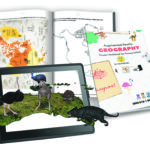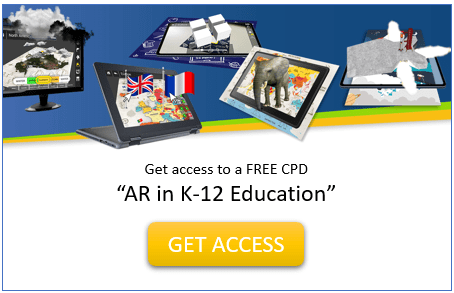
FOR IMMEDIATE RELEASE
Augmented Reality (AR) is at the forefront of the debate on how to improve education with the use of new technologies. The ARETE project aims to support the pan-European interactive technologies effort both in industry and academia, through the multi-user interactions within AR technologies evaluated in education in both professional and private contexts.
About Pilot 2
Within Pilot 2 the aim is to reach to over 170 teachers from across Europe covering multiple languages: English, Italian, Greek, Polish, Portuguese, Serbian, Croatian, and Spanish. Pilot 2 participants will have access to interactive augmented reality (AR) solutions for geometry and geography content provided by CleverBooks.
All the participants will receive free products and software. For research purposes, the data comes from standardized assessment from teachers and students at a class level. It assesses the impact of STEM-based AR educational toolkits (GDPR compliant – without collection of personal information).
Research
This data will be compared with the similar assessment conducted in a control group, which has not been part of the AR intervention. The goal of this research is to understand whether Augmented Reality supports STEM education at the primary school level and helps to keep retain interest in STEM subjects longer. The impact of the AR as a new tool in education will be tested.
- By 23rd October 2020, teachers apply for the call through the following link https://www.surveymonkey.com/r/ARETE-Open-Call-for-Teacher-Coordinators-Pilot-2
- Pilot 2 teacher coordinators team up with another teacher from their school (a ‘team member’, who will participate in the ARETE Pilot 2 in the control group) in order to apply to this call. The involvement of the ‘team member’ will only begin in January 2021.
- The teachers get official information from European Schoolnet.
Pilot 2 recruitment process started on 5.10.2020. To track the project progress, follow ARETE project on LinkedIn, Twitter, Facebook.
The ARETE project has received funding from the European Union’s Horizon 2020 research and innovation program under grant agreement No 856533.

